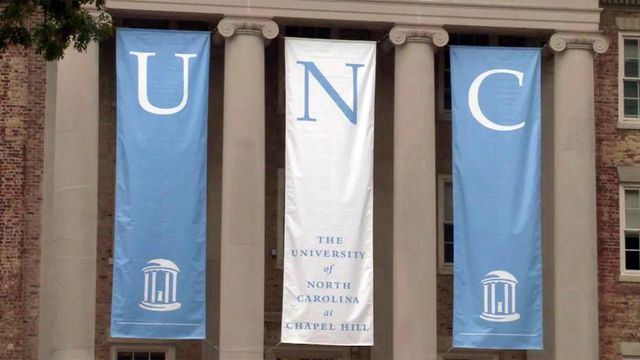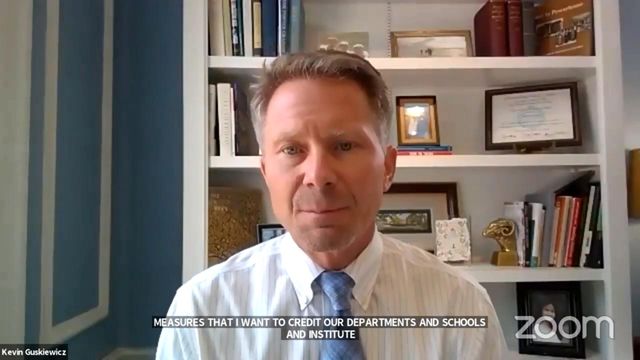UNC-Chapel Hill weighs furloughs, salary cuts to offset potential $300M loss
The University of North Carolina at Chapel Hill could lose $300 million this year because of the pandemic, officials said Friday, meaning job cuts might be needed to balance the school's budget.
Posted — UpdatedThe $300 million figure amounts to 8 percent of the university's annual budget and doesn't include any cuts lawmakers might make to the UNC system's state funding, said Nate Knuffman, interim vice chancellor for finance.
"We are going to be faced with some difficult decisions in the coming months," Chancellor Kevin Guskiewicz told members of the Faculty Council in a Friday afternoon meeting.
Becci Menghini, vice chancellor for human resources, said UNC-Chapel Hill has a limited number of tools to address the lost revenue:
- Some furloughs have already happened, and more are possible.
- Some employees may be required to work reduced hours for reduced pay.
- There could be temporary reductions in base salary for those making more than $45,000 a year.
- Some faculty and staff could be asked to take early retirement.
- Programs could be eliminated or reduced in size.
"We would be failing in our duties as leaders if we weren't looking into these options and evaluating the tools available to us," Menghini said, noting that most of the potential actions must comply with state personnel laws, UNC system rules or both.
Employees would have plenty of advance notice on any actions, she said.
Faculty members said they're concerned about what cuts would mean for both them and students.
Aikat said he hopes Guskiewicz and other administrators focus on preserving the university's mission in any cuts they make.
"As a whole, our university funds all of these things through an educational mission, and if we have fewer funds, we really cannot provide the quality that we are used to," he said. "Make sure that we do not disrupt the quality of our education."
Guskiewicz said he and his team are trying to balance keeping everyone safe with keeping everyone whole.
Administrators also told faculty that they haven't made any decisions yet on the spring semester, including when and how it will start and whether there will be a spring break.
"We don't have a lot of time," he said. "We're going to have to be making some decisions based on an acceptance of there being some uncertainty still with regard of the spread of the virus and the likelihood that we will not have a vaccine by the time the spring semester starts."
Guskiewicz is appointing a 25-member committee of faculty, staff, students and Chapel Hill residents to work with a planning team and disease experts to craft another "road map" for UNC-Chapel Hill operations in the next semester.
"I think that the spring 2021 semester will be an important semester because we get to learn from our experience in fall 2020," Aikat said.
Provost Bob Blouin said the planning must include "multiple scenarios" so that the university doesn't have such a sudden shift from in-person to online classes, as happened last month.
"What caught us all a bit off-guard was the speed with which things happened, which made some of that planning even more difficult to implement and execute," Blouin said.
Related Topics
• Credits
Copyright 2024 by Capitol Broadcasting Company. All rights reserved. This material may not be published, broadcast, rewritten or redistributed.






